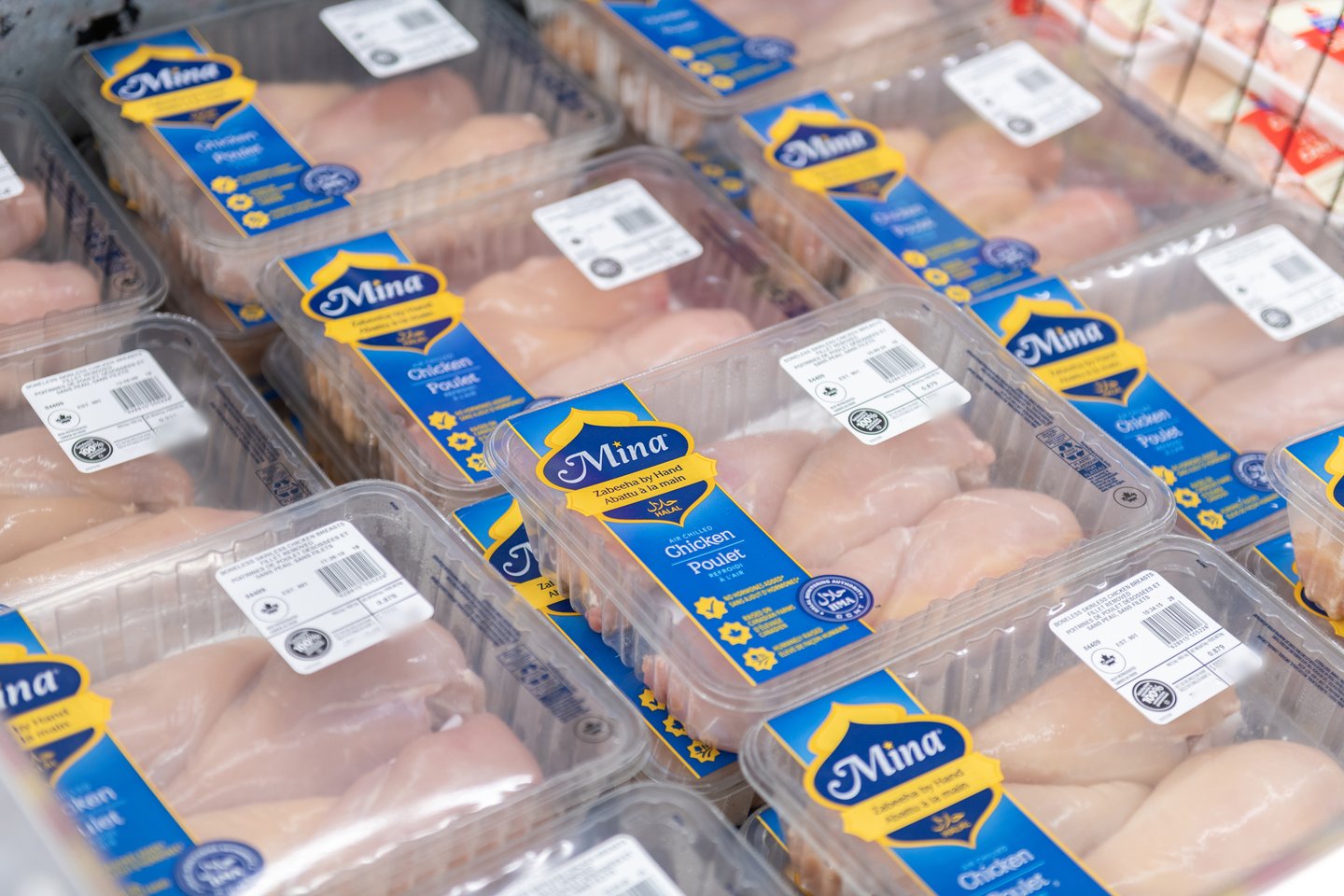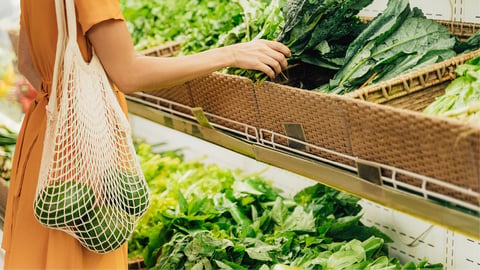Maple Leaf Foods talks sustainability from both sides
Maple Leaf Foods has made a big commitment to sustainability, and it’s encouraging consumers to do their small part.
Earlier this month, the CPG company launched its second annual “Little Changes Day,” a campaign aimed at helping Canadians make small changes that will have a positive impact on the environment. The campaign is based on the insight that Canadians want to help the planet, but many don’t know where to start. In a survey conducted by Maple Leaf, 75% of Canadians said they would like tips and examples of little changes they can make in their everyday lives.
This year’s theme was the “Disconnected Dinner Challenge,” which promoted the idea that disconnecting from screens will reduce carbon emissions and help people reconnect around the dinner table. (To put it in perspective, Maple Leaf Foods said it would take planting trees in an area the size of 50 hockey rinks to offset the amount of CO2 generated by just one hour of TV watching.) As part of the campaign, the company produced tips to help families disconnect during mealtime, like creating a conversation jar and putting phones out of sight.
“There are global challenges that we all have to undertake together, but it can be overwhelming on where to get started. So, we decided to start Little Changes Day as an annual event,” says Joe McMahan, vice president, sustainability and shared value at Maple Leaf Foods. “It’s an opportunity to engage Canadians and their families on the little things they can do to make a difference, and to make it fun and to tell a story around it.”
The fun part, he adds, is unique because “we’re not saying, ‘you need to live these very bare, austere, minimalist lifestyles.’ We’re saying, ‘here’s some little things that can really make a difference that you may not have thought of.’”
Maple Leaf Foods plans to keep Little Changes Day going for years to come. “Our journey is to be the most sustainable protein company on Earth, but we believe firmly that it’s not just about what you can do within your four walls. It’s a monumental global effort,” says McMahan. “And so, the more that we can reach out, the more that we can educate, the more that we can collaborate, the better off we all are.”
While things like turning off the TV may be a drop in the climate-change bucket, Little Changes Day is part of Maple Leaf’s broader commitment to environmental sustainability. The journey started several years ago, with the company’s ambition to become “the most sustainable protein company in the world,” with efforts in areas like nutrition and health, animal welfare, waste and emissions.
READ: Maple Leaf pushes forward with sustainability strategy
One new way the company is reducing its carbon footprint is through regenerative agriculture. In its Integrated Report 2022, Maple Leaf Foods explains regenerative agriculture as “a set of farming principles and practices that regenerate the land, capture carbon from the atmosphere and store it in the soil, increase biodiversity, improve soil health, boost farmer livelihoods and enhance landscape resilience.”
As part of its efforts in this area, Maple Leaf Foods has teamed up with Nutrien, a Canadian company and the world’s largest provider of crop inputs (such as fertilizer and seeds).
“We have done a lot of work with Nutrien… to partner with farmers that are supplying feed that’s used for our hog production, on ways that they can become more efficient with fertilizer use, ways that they continue to enhance their soil health, in a way that makes economic sense and provides them with the facilitation and the guidance to really move the needle forward,” says McMahan.
Another focus area is packaging, with an aim to have 100% sustainable packaging. Maple Leaf Foods is working to reduce and/or convert all its packaging components, including trays, films and labels, into recyclable, compostable or reusable materials. For example, with flexible films or plastics that cover poultry or pork products, McMahan says, “we’ve had a lot of progress in downgauging or decreasing the thickness of that plastic, so there’s much less plastic waste to begin with.” In addition, 100% of the trays that hold fresh meat will be fully recyclable by the end of this year.
“Those are just some pieces that are not only important for our environment, but they’re buying us a lot of goodwill with our customers, who have their own packaging goals,” says McMahan. “And it’s a story that we can tell with consumers, which makes a lot of sense. They appreciate and understand that.”





